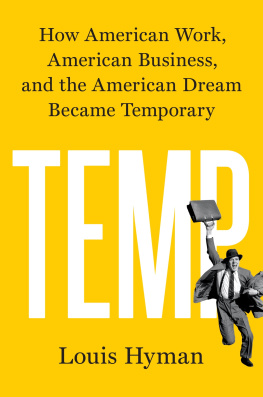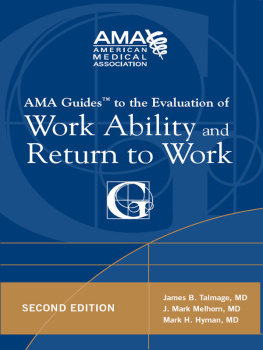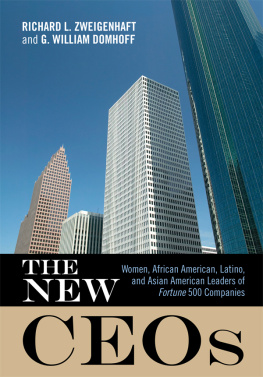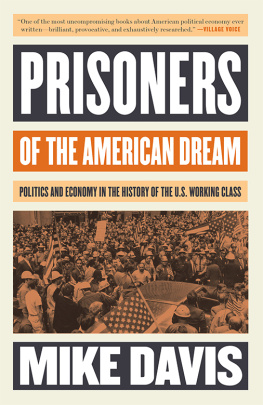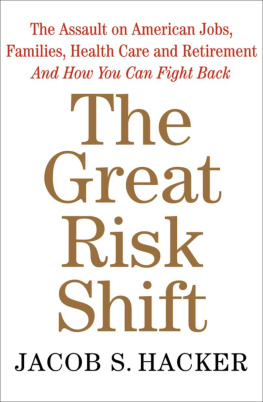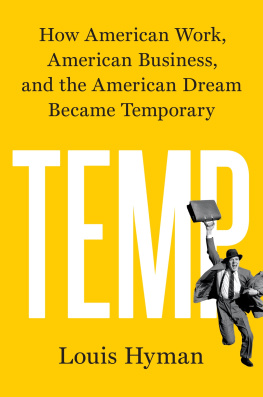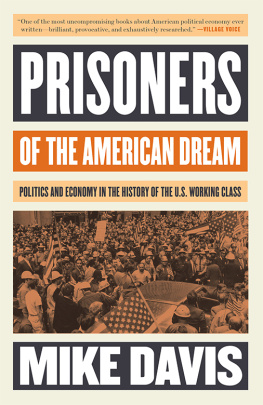Penguin supports copyright. Copyright fuels creativity, encourages diverse voices, promotes free speech, and creates a vibrant culture. Thank you for buying an authorized edition of this book and for complying with copyright laws by not reproducing, scanning, or distributing any part of it in any form without permission. You are supporting writers and allowing Penguin to continue to publish books for every reader.
Names: Hyman, Louis, 1977- author.
Title: Temp : how American work, American business, and the American dream became temporary / Louis Hyman.
Description: New York : Viking, [2018] | Includes bibliographical references and index.
Identifiers: LCCN 2018025161 (print) | LCCN 2018026796 (ebook) | ISBN 9780735224094 (ebook) | ISBN 9780735224070 (hardcover)
Subjects: LCSH: Temporary employmentUnited StatesHistory. | Labor marketUnited StatesHistory. | Job securityUnited StatesHistory. | LaborUnited StatesHistory.
Classification: LCC HD5854.2.U6 (ebook) | LCC HD5854.2.U6 H96 2018 (print) | DDC 331.25/729dc23
While the author has made every effort to provide accurate telephone numbers, internet addresses, and other contact information at the time of publication, neither the publisher nor the author assumes any responsibility for errors or for changes that occur after publication. Further, the publisher does not have any control over and does not assume any responsibility for author or third-party websites or their content.
Somebody must do the work and it might as well be you.
INTRODUCTION
How We All Became Temps
During the worst recession since the Great Depression, Elmer Winter gave a speech condemning the complacency of American businessmen. Winter was the president of Manpower Inc., a temporary labor agency, but also one of Americas largest employers. He delivered his speech as a call to armsa plea for nothing less than to save the country itself.
Winter fixed on deadly fears of the future as a themedevelopments Americans believed would undermine their economic safety. Some of these fears came from abroad, like Chinese twenty-five-cents-an-hour labor or Russias ever subtle global diplomacy. Most of Winters fears, however, were about America itself, about the disconnect between our hopes and our realities. Foremost in the thinking of every man and woman who works is the basic question, Winter said, How secure is my job? The hope of the man on the street today in America, he told the shareholders, is a good jobgood health and securityfor himself and for his family.
Ever the realist, Winter told the businessmen that this dream of economic security, in the form of a steady, well-paid job, would no longer be possible. He told them that the old days are gone... and plans must be the order of the day. Winters vision was to bring down costs, especially labor costs, by providing a flexible workforce without job guarantees, buttressed by new automation technology. American business would need to work smarter and harder to overcome the hue and cry that we cant compete with foreign products where our labor rates are three or four times higher than theirs. Manpower, and other temporary agencies like them, would provide that labor.
Winters speechyou might be surprised to learnwas delivered not in 2008, but in 1958. He gave it in the first brief downturn of the postwar economy. The end of American job security was not in the past, but still in the future.
His prognostications came true, partially because heand others like himbelieved them so zealously and worked so hard to bring them about. The rise of our flexible economyhow we all, to some degree, have had to come to terms with the withering of the postwar jobis not just the story of Elmer Winter. His company, Manpower Inc.the first major temporary agency, which in 2017 still employed more than 3 million people or 50 percent more than Wal-Martwould play an important role in transforming the world of work from one of security to insecurity, but it would not be alone. This transformation was not a conspiracy, but was carried out in public to much acclaim. Presidents, CEOs, and stock markets the world over celebrated the dismantling of the postwar prosperity.
Most people kept their jobs, but you dont need to replace everybody to make the rest insecure. Temps define the limits of what is possible in labor, casting a long shadow over the rest of the workforce. Beginning in the midst of the postwar boom in the 1950s, American jobs were slowly remade from top to bottom: consultants supplanted executives at the top, temps replaced office workers in the middle, and day laborers pushed out union workers at the bottom. On every step of the ladder, work would become more insecure as it became more flexible.
This new economic arrangement produced opportunities and wealth for those at the top, but for most people, flexibility produced economic uncertainty. For some of the new temps, like consultants, the work is glamorous and lucrative. For others, like office workers, it is a dead end. For those day laborers waiting outside Home Depot, it is work with little pay and much danger. Despite pay gaps, education gaps, and citizenship gaps, temps have come to define our workplaces today in ways that Mad Menera secretarial tempswhite gloved and beautifulnever could have imagined.
Temp is the history of this transformation, of how the postwar world, which to our eyes worked so well, came undone neither by economic accident nor by technological inevitability, but by human choice.
Many of us who came of age in the 1970s, 80s, and 90s expected those postwar days to return. We believed that whatever the recession that Winteror Carter, or Reagan, or Clintonhad been addressing, it was only temporary. The good years, the permanent onward progress of prosperity, would surely return. For most Americans, they have not. Where did all the good jobs go?
The answer goes deeper than Uber and further back than downsizing, and contests the most essential assumptions we have about how our economy and our businesses work.
The Rise and Fall of the Postwar Economy
A postwar world of work and business that brought two generations of unprecedented prosperity came to an end in the 1970s, and in its stead a new era of wage stagnation and income inequality beganthough it was hard at first to see that this change was permanent. For a while, the wage problem was hidden, first by more women entering the workforce (raising household income) and then by rising house prices (raising household equity). But in the collapse of 2008, we all suddenly became aware that while the economy had grown for forty years, the 10 percent at the top received 87 percent of all that growth (compared with 29 percent from 1933 to 1973). The much-maligned 1 percent alone received 56 percent of all the growth from 1975 to 2006. In the aftermath of the Great Recession of 2008, we discovered that our society not only was unequal, but also had been becoming steadily more so for a long time. Instead of progress, we had been in decline (at least if you were not in the 1 percent). In 2018, despite a booming stock market, we are still wrestling with the aftershocks of that recession, but the real roots of todays insecurity go much deeper than credit default swaps and underwater mortgages.

